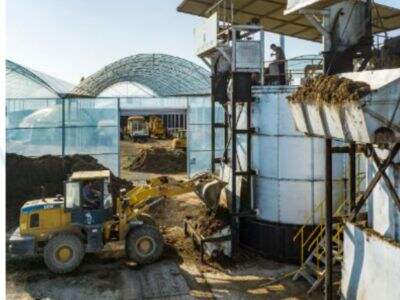הגברת התפוקה החקלאית באמצעות עקרונות חקלאות ברת קיימא
בעידן המודרני, ניתן לראות את ההשפעות של שינויי האקלים על החקלאות. עם עליית התחממות כדור הארץ, חקלאים חייבים להיצמד לדפוסי אקלים לא יציבים ולאזורים עם דלות בקרקע ובמים. כדי להתמודד עם אתגרים אלו, חשוב לאמץ חקלאות חכמה-אקלים. לחקלאים יש את הכוח להגביר את תפוקת הגידולים ולשמור על הסביבה לדורות עתידיים.
בריאות הקרקע – שיפור תזונה ואיכות
אחד המרכיבים של חקלאות חכמה-אקלים phân kali אורגנית היא שיקום בריאות הקרקע. לא ניתן להשיג יבול בריא ללא קרקע בריאה, מה שמספק תזונה טובה יותר ואיכות גבוהה יותר של גידולים. אסטרטגיות כמו חלופת גידולים, שילוב גידולים וחישול שמרני יכולות גם הן להיות מיושמות על ידי החקלאים כדי לשפר את פוריות הקרקע ולאפשר לקרקע להילחם בשינויי האקלים. קרקעות בריאות עוזרות גם באגירת פחמן, ולכן בהפחתת ההשפעות של שינויי האקלים.
הפחתת השפעות שינוי האקלים באמצעות חקלאות חדשנית
בעיית שינוי האקלים בתחום החקלאות היא משבר גלובלי. מגדלים חווים לעיתים קרובות יותר תרחישים קיצוניים של מזג אוויר, עם השפעות על כשלים בהשאבות ובתנאי ביטחון המזון. שינוי האקלים הוא בעיה נוספת שבה יישום טכניקות חקלאות חדשניות ישפיע בצורה חיונית בניהולה. שיטות חקלאות כגון חקלאות יערית, איסוף מי גשמים וחiculture מדויקות יכולות לאפשר למגדלים להסתגל לאפקטים משתנים של האקלים, גם כן תוך הפחתת פליטות גזי חממה. אם יאמצו מגדלים חלק מהמוניטורים הללו, הם יוכלו להיחשב עמידים יותר בפני שינויי האקלים.
אבטחת מערכות המזון שלנו לדורות הבאים
מערכות מזון חזקות הן חשובות ביותר ליציבות של ביטחון המזון לאורך זמן, במיוחד עם האוכלוסייה העולמית הגוברת. ה-C.S.A. ממלא תפקיד מרכזי בכינון פיתוח של מערכות מזון שמתאימות לאקלים וברות-קיימא. הת çeşit المحاصולים, שיפור בשימוש במים ושימוש בר-קיימא בקרקע יכולים גם לאפשר לחקלאים להבטיח אספקת מזון מתמדת לעתיד. עכשיו הוא הזמן לבנות מערכות מזון חזקות יותר שיבטיחו את עתיד המזון.
הגברת מגוון ביולוגי ושיפור תactices חקלאיות עם הגנת הסביבה
מגוון ביולוגי וחשיבותו למערכת אקולוגית בריאה ויציבה. מגוון ביולוגי טומן בחובו את סוד ייצור יבולים בר-קיימא בחקלאות. קיים מגוון צמחים ובעלי חיים שחקלאים יכולים לעודד בחוותיהם, מה שחקלאים יכולים לעשות הוא לשתול סוגים שונים של יבולים ולשמר בתי גידול טבעיים כמו גדר חיה ושולי שדות. מגוון ביולוגי משפר את החוסן לא רק של מסגרת ניהול הקרקע של המערכות האקולוגיות, אלא גם של בריאות הקרקע והיבולים. החקלאות צריכה לשנות את שיטותיה כדי להפוך אותן לבנות-קיימא יותר על מנת לקדם את המגוון הביולוגי.
חקלאות חכמה מבחינה אקלימית היא קריטית לשמירה על ריבונות מזון ארוכת טווח. לחקלאים יש הכוח לגדל עתיד בטוח ובר-קיימא במזון עבור דורות עתידיים, על ידי הגדלת התפוקה של المحصول, שיפור בריאות הקרקע, ייצוב והגנה מפני ההשפעות הגוברות של שינויי האקלים על מערכות ייצור המזון, תמיכה בגיוון החי וצמצום בזבוז. חברת T Plus Internet Technology Co., Ltd מחויבת להאצת חקלאות חכמה לאקלים ולאפשר לחקלאים ליישם פרקטיקות בר-קיימא לעתיד עמיד ובטוח במזון.

 EN
EN
 FR
FR
 DE
DE
 IT
IT
 AR
AR
 HR
HR
 DA
DA
 NL
NL
 FI
FI
 HI
HI
 JA
JA
 KO
KO
 PT
PT
 RU
RU
 ES
ES
 SV
SV
 TL
TL
 IW
IW
 ID
ID
 SR
SR
 UK
UK
 VI
VI
 HU
HU
 TH
TH
 TR
TR
 FA
FA
 AF
AF
 MS
MS
 GA
GA
 CY
CY
 AZ
AZ
 BN
BN
 KM
KM
 LO
LO
 LA
LA
 MR
MR
 NE
NE
 MY
MY
 KK
KK
 UZ
UZ
